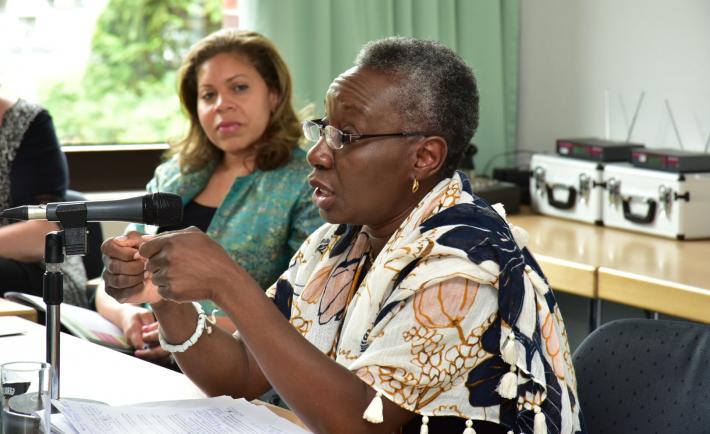
Rockefeller Foundation's Sundaa Bridgett-Jones listens to NDI's Sandra Pepera at ICLEI's Resilient Cities Forum in Bonn in July 2016. Photo Credit: ICLEI-Local Governments for Sustainability
More than half of the world’s population now lives in urban areas. As the forces of globalization rapidly draw more people to urban centers in search of socioeconomic opportunity, we must ask: How do we ensure our cities are safe, sustainable and resilient?
When considering city resiliency, we think immediately of physical necessities: will people have access to clean water, sturdy buildings, safe roads and public transport? Will the city be environmentally sustainable, and be able to weather and recover from natural disasters?
Resilience, though, isn’t only about civil engineering -- it’s also about politics and governance. Inclusive and responsive democracies minimize insecurity and help protect particularly vulnerable community members from potential shocks and stressors. Democracies based on these values guard against instability and conflict and work to address the needs of their populaces, especially in circumstances where the population is diverse and may have competing interests.

